“It was filthy and felt abandoned. Much of the housing was semi-derelict and many of the shops were on their last legs. For many it was the place where they ended up when their lives fell apart”
– David Hoffman on housing in London’s Eas tEnd, 1973
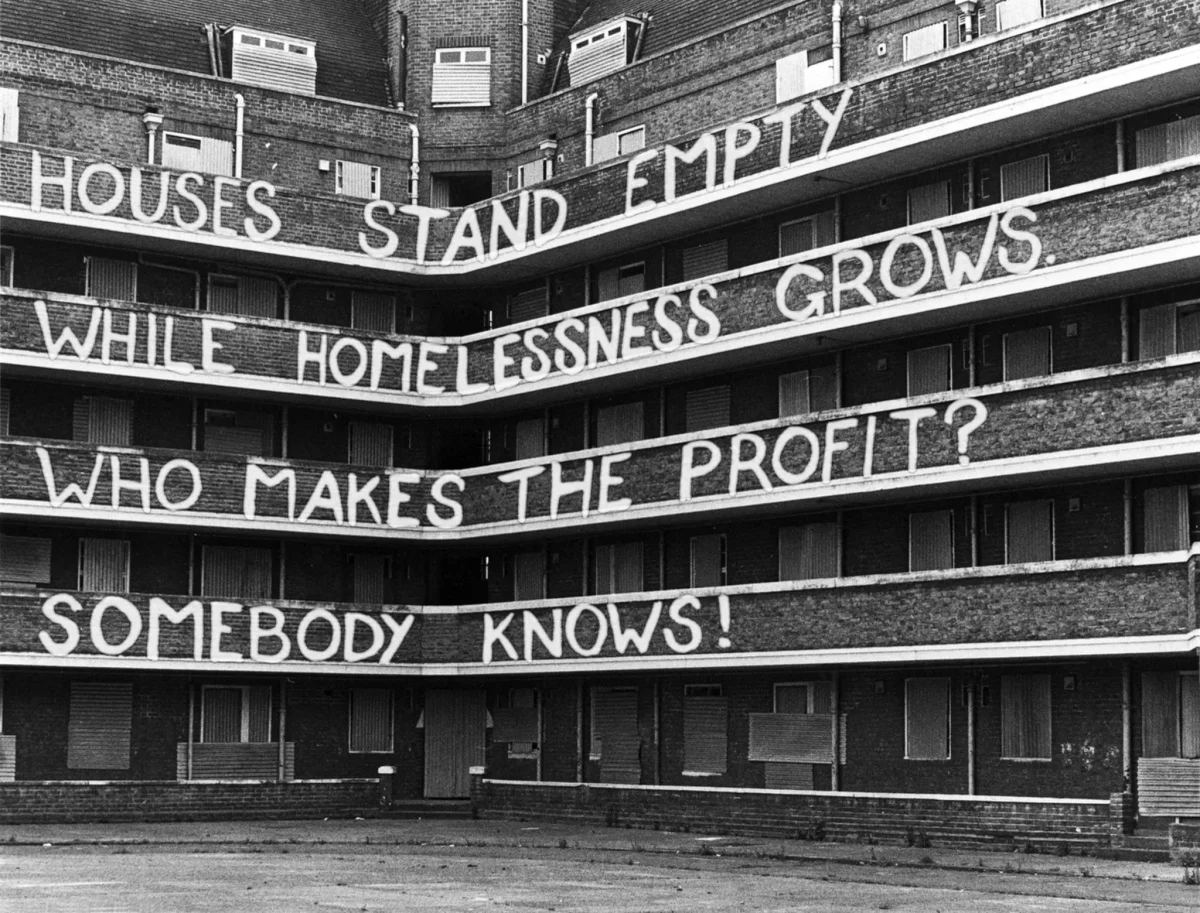
In 1973, Tower Hamlets council in London’s East End wanted to demolish housing being used by squatters. As with other photographers who recorded life in the area – we think of the brilliant work by Nick Hedges, David Granick, Tony Hall and many more – David Hoffman was there to see it.
“It was filthy and felt abandoned,” he remembers of his time spent squatting in Whitechapel. “Much of the housing was semi-derelict and many of the shops were on their last legs. For many it was the place where they ended up when their lives fell apart. It was clearly a dead end.”
At Parfett Street, Hoffman found a community. “Squatting is mostly a communal activity,” Hoffman says. “It brings people together to repair and improve the, mostly broken-down, housing available. The mutual support – and mutual tensions – helped form political understanding and brought us together in activist groups… While I was powerless to change any of it, I felt that I could and should at least document it.”
The fight means that many of these buildings survive today, restored and used for housing.
With the release of Parfett St Evictions 1973 (Café Royal), Hoffman revisits what became the first British protest photography book when it was first published in 1976.
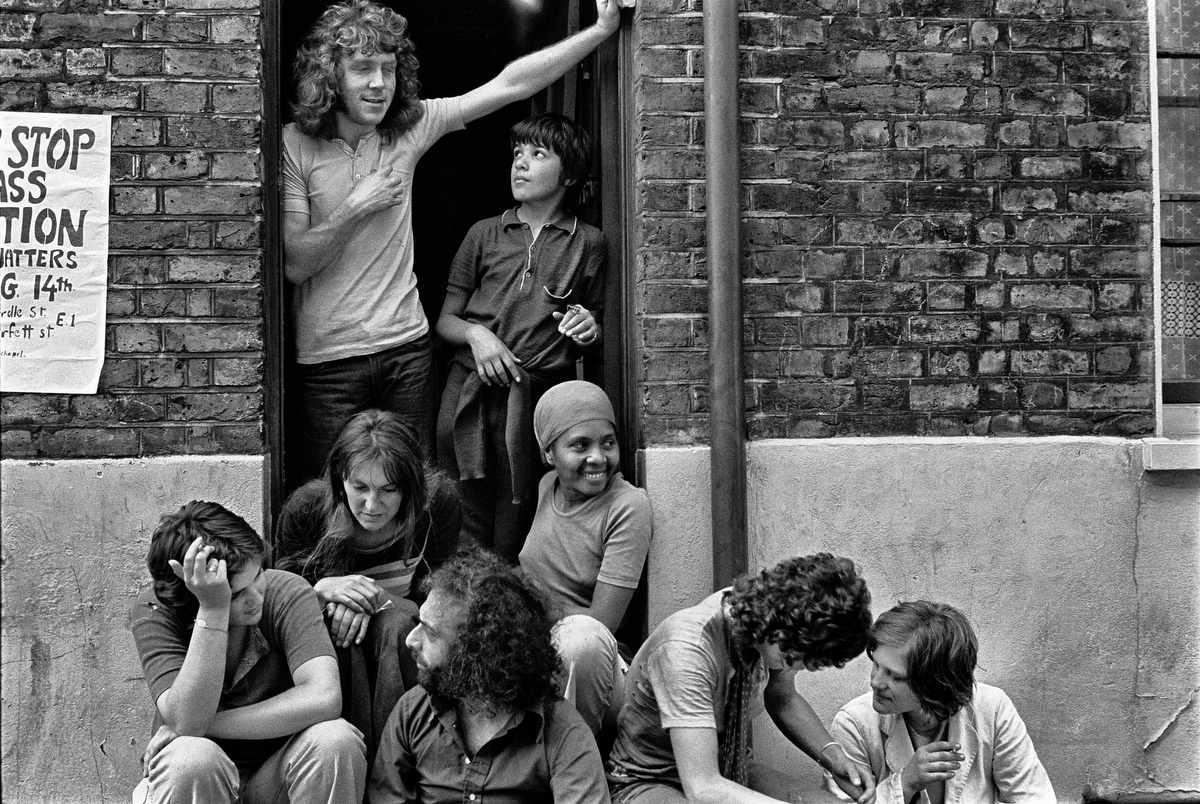
Waiting for the bailiffs before the eviction of squatters, Parfett Street, 1973
Many unused buildings marked for demolition combined with a lack of available and affordable housing in London made squatting commonplace in the 70s. By the mid-70s around 20,000 people were squatting in the city. Squatting was outlawed in 2012. Although squatters occupying non-residential buildings will still be able to claim “squatter’s rights”.
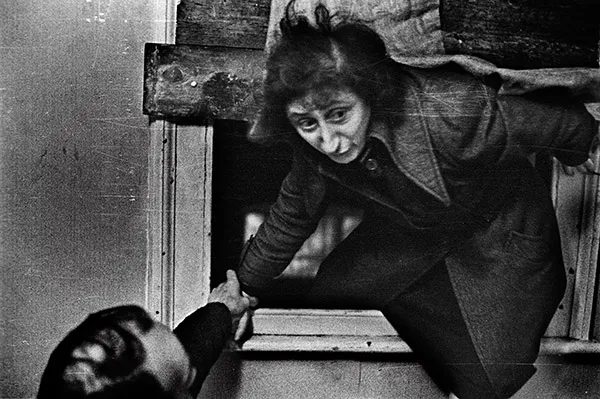
“Doris Lerner was the oldest and had been a political activist all her life. Doris would go to auctions of squatted houses and buy them. Being penniless this would delay the sale and extend the life of the squat.”
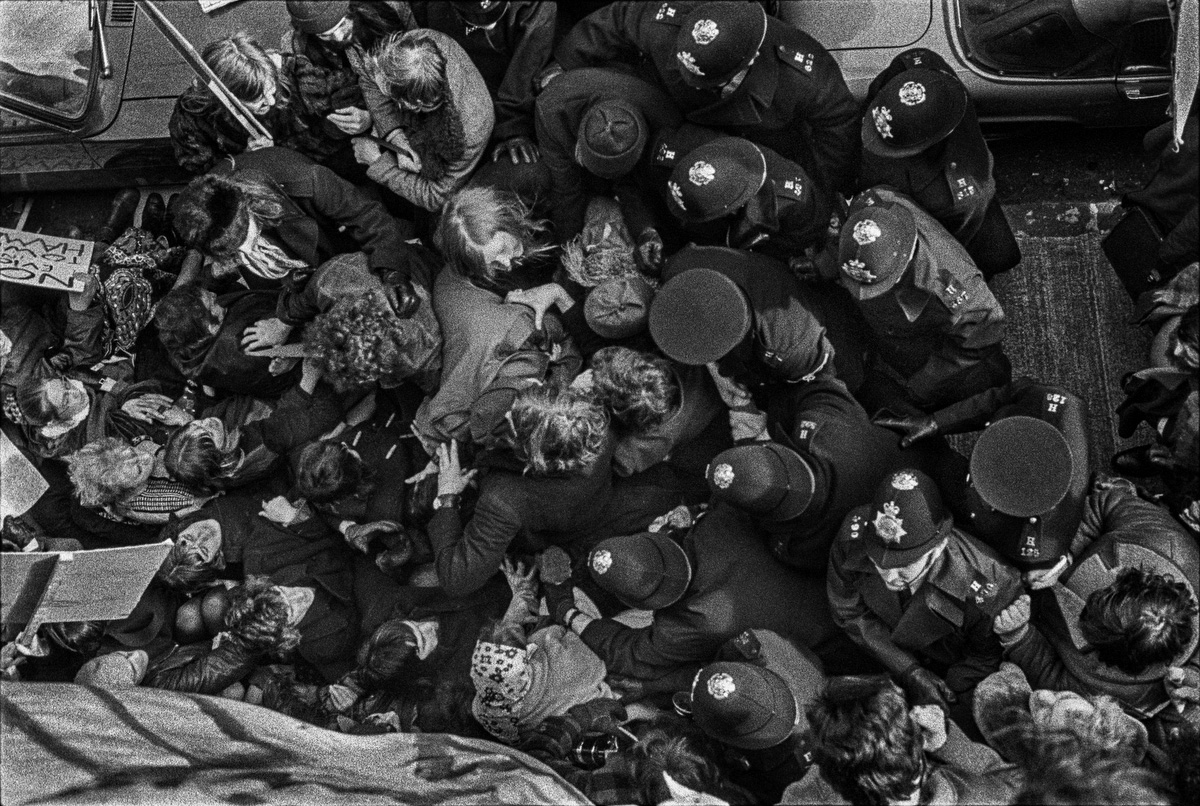
Police try (and fail) to force a path through squatters and their supporters preventing the eviction of squatters from private rented property that was being kept empty in Parfett Street, Whitechapel, London. 1973.
“Tony was an early and resolute Gay Rights activist. Duncan was an anarchist and believer in redistribution. Bonkers Piers Corbyn, brother of Jeremy Corbyn would turn up occasionally, try and steal some limelight and then wander off when there was work to be done. We had sex workers, architects, performers, jewellers, musical instrument makers and drug dealers. A healthy mix.”
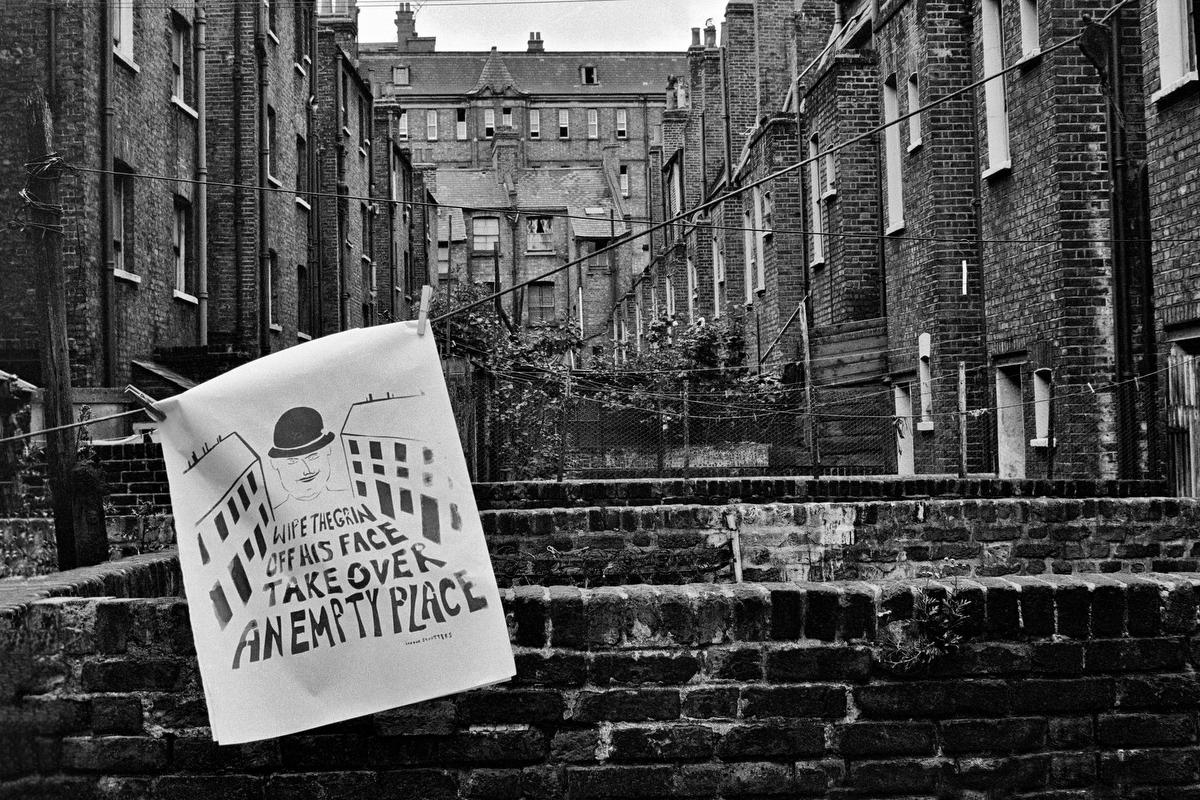
One of many posters around the East End protesting at the eviction of squatters, Parfett Street, 1973
“Police would turn up to protect bailiffs in an eviction but they didn’t bother to patrol the area much and generally saw anything to do with us as rubbish work, beneath their dignity. When landlords sent in heavies to make an unlawful eviction, the police were nowhere to be seen.”

Squatters waiting to resist eviction behind the barricaded front door of a squat in Parfett Street, Whitechapel February 1973.
Back row: Ann Pettitt, Anne Zell. Front: Duncan, Tony Mahoney, Phineas.

One of many posters around the East End protesting at the eviction of squatters, Parfett Street, 1973
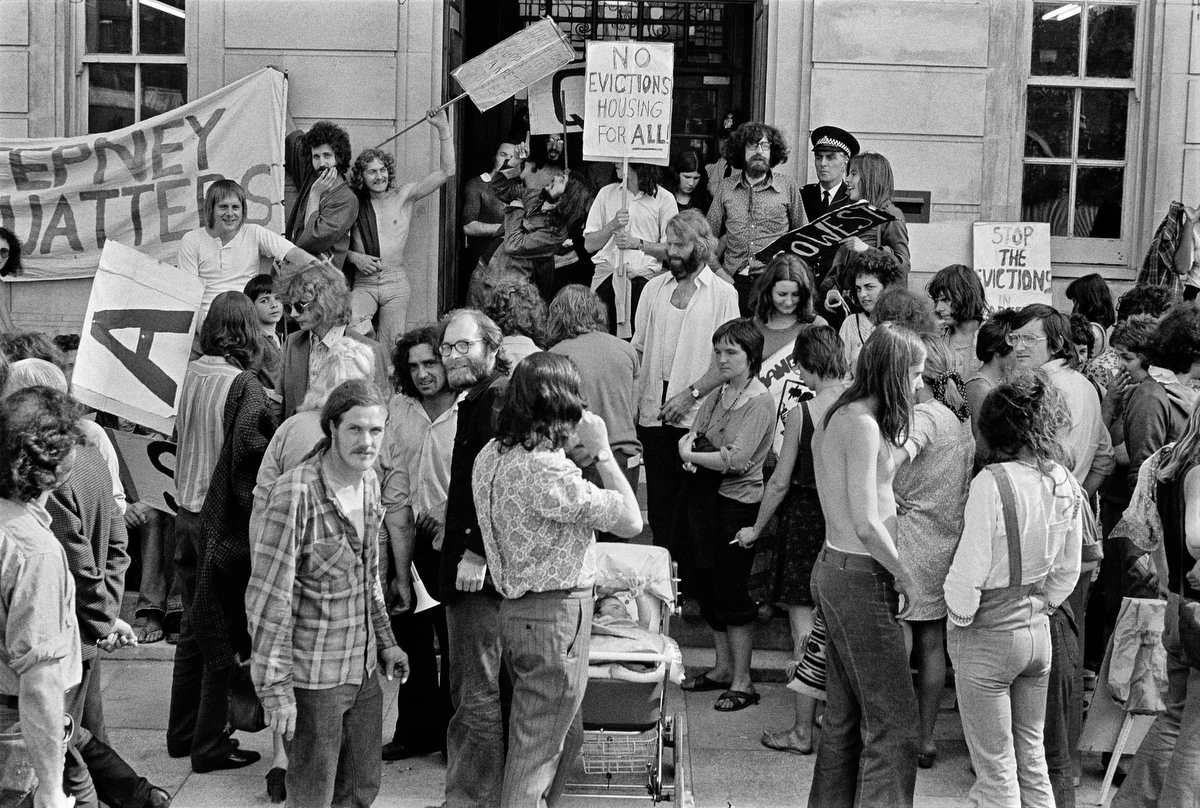
March on Tower Hamlets Town Hall in Patriot Square protesting against the eviction of squatters, Parfett Street, 1973
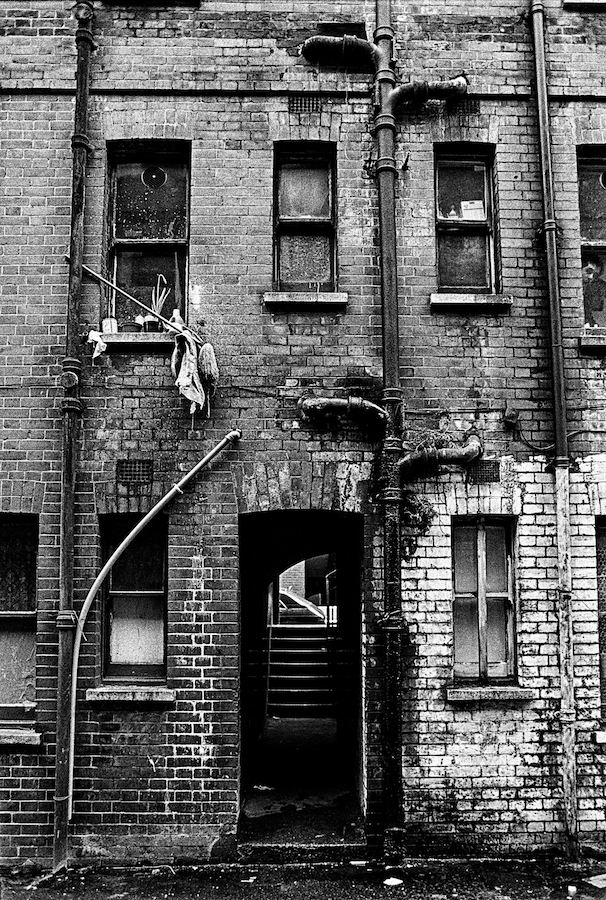
Fieldgate Mansions, a 19th century tenement block due to be demolished in 1972 but preserved by squatters occupying it.
View from David Hoffman’s flat.
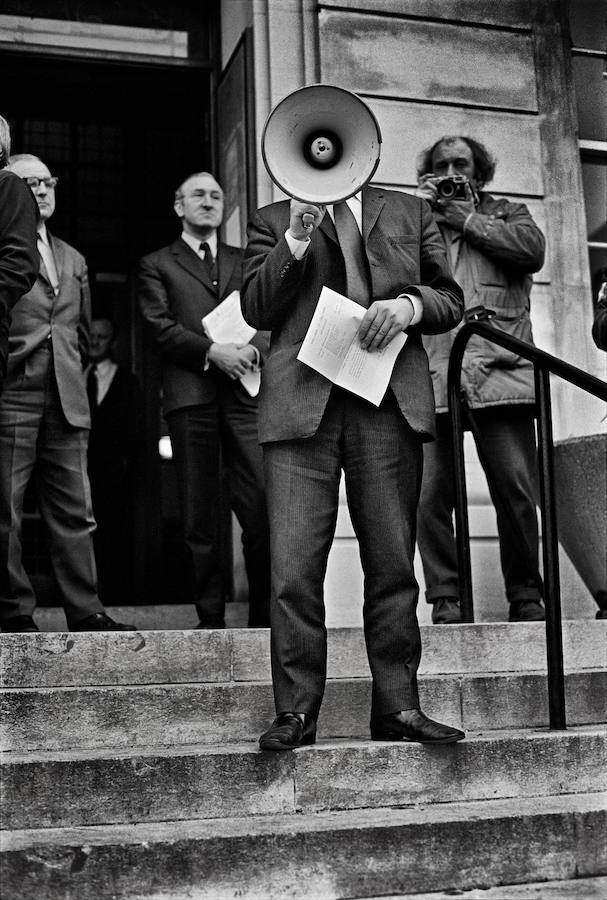
Council official tells squatters who had marched on Tower Hamlets Town Hall that they should go away and engage in dialogue with their councillors.
Patriot Square, 1973.

Fieldgate Mansions, Whitechapel Summer 1985. Scheduled for demolition in 1972 it was squatted by homeless people, artists & Bengali immigrants preventing destruction until taken over by a community housing trust in 1980 & modernised in the early ’90s.

Empty house graffitied following the eviction of squatters from this privately owned rented property that was being kept empty in Whitechapel, London. 1973
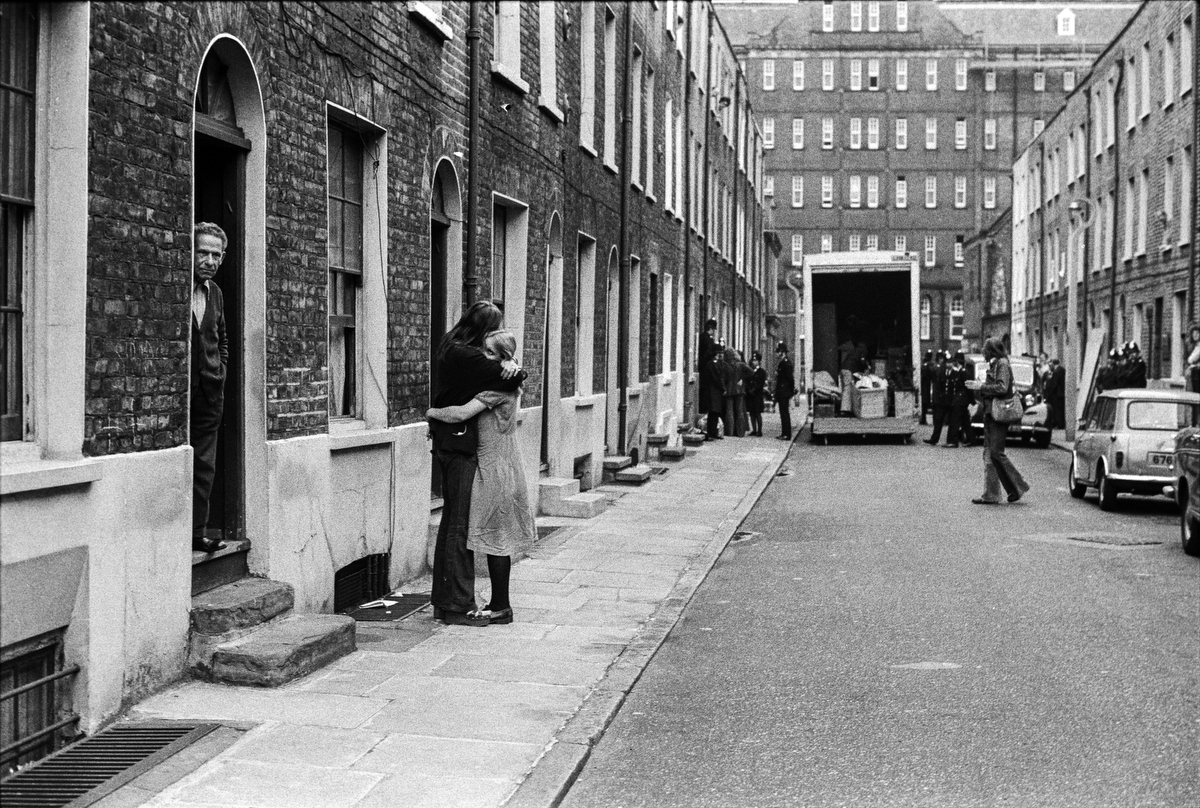
Eviction of squatters from private rented property that was being kept empty in Parfett Street, 1973
Parfett St Evictions 1973 is out now on Café Royal Books.
Would you like to support Flashbak?
Please consider making a donation to our site. We don't want to rely on ads to bring you the best of visual culture. You can also support us by signing up to our Mailing List. And you can also follow us on Facebook, Instagram and Twitter. For great art and culture delivered to your door, visit our shop.











